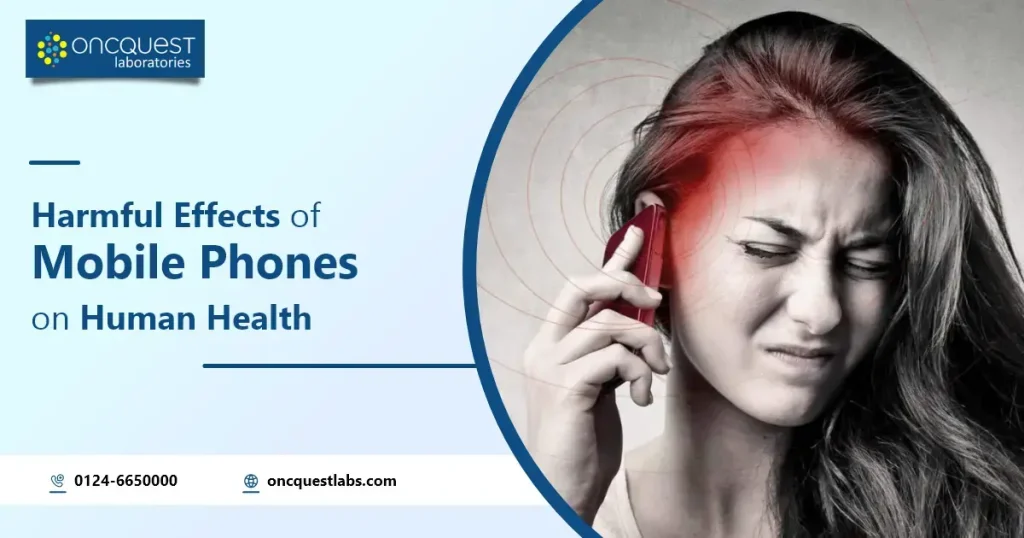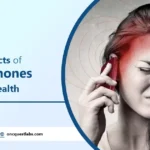Mobile phones have become an indispensable part of modern life. With the advent of smartphones, their usage has skyrocketed, integrating deeply into our daily routines. From communication to entertainment, navigation to education, mobile phones serve myriad purposes, making them virtually indispensable. This widespread adoption raises a critical question: what are the implications of such pervasive use on human health?
Contents
Why Investigate Mobile Phone Health Effects?
Despite their numerous benefits, there is growing concern about the potential health risks associated with prolonged mobile phone use. Scientific curiosity and public health considerations drive the investigation into these effects. As research evolves, it becomes increasingly important to understand both the immediate and long-term impacts of mobile phone use on physical, mental, and behavioral health. This article delves into these concerns, examining the evidence and providing strategies for mitigating potential risks.
Physical Health Effects
Radiation Exposure
Mobile phones emit a form of non-ionizing radiation called radiofrequency (RF) radiation. While short-term exposure to this radiation is generally considered safe, there is concern about the potential long-term effects. Prolonged exposure to RF radiation has been linked to various health issues, although conclusive evidence is still under study. It is crucial to understand the types of radiation emitted by mobile phones and the possible health risks associated with long-term exposure.
Sleep Disruption
One significant physical health effect of mobile phone use is sleep disruption. The blue light emitted by phone screens can interfere with the production of melatonin, a hormone that regulates sleep cycles. This can lead to difficulties in falling asleep, reduced sleep quality, and shorter sleep duration. Chronic sleep deprivation can result in various health problems, including weakened immunity, cognitive impairments, and increased risk of chronic conditions such as obesity and heart disease.
Eye Strain and Vision Problems
Extended use of mobile phones can cause digital eye strain, characterized by symptoms such as dry eyes, blurred vision, and headaches. The small text and bright screens of mobile phones force the eyes to work harder, which can lead to long-term vision problems. Preventative measures, such as taking regular breaks and adjusting screen settings, can help mitigate these effects.
Hearing Loss
Using earphones and headsets at high volumes for prolonged periods can damage the delicate structures within the ear, leading to noise-induced hearing loss. This condition is particularly concerning among younger users who frequently listen to music or other audio content at high volumes. It’s essential to promote safe listening practices to prevent hearing damage.
Musculoskeletal Disorders
Frequent use of mobile phones can lead to musculoskeletal issues such as “text neck,” a condition resulting from the prolonged forward head posture while looking at screens. Additionally, repetitive strain injuries (RSIs) can occur from excessive typing or swiping. These conditions can cause chronic pain and discomfort in the neck, shoulders, and hands. Adopting proper ergonomics and taking regular breaks can help prevent these disorders.
Potential Cancer Risks
There is ongoing debate in the scientific community about the potential link between mobile phone use and cancer, particularly brain tumors. Some epidemiological studies suggest a possible association, while others find no significant risk. The International Agency for Research on Cancer (IARC) has classified RF radiation as “possibly carcinogenic to humans,” indicating that more research is needed to draw definitive conclusions. It is prudent to stay informed about new findings and adopt precautionary measures where possible.
Understanding and addressing these physical health effects is essential for minimizing the risks associated with mobile phone use. By being aware of these potential issues and taking appropriate steps to mitigate them, users can enjoy the benefits of mobile technology while safeguarding their health.
Mental Health Effects
Increased Stress Levels
The constant connectivity afforded by mobile phones can lead to heightened stress levels. The pressure to be constantly available and responsive can create a sense of urgency and anxiety. Social media platforms, messaging apps, and emails contribute to this phenomenon by fostering a culture of immediate communication. This perpetual state of alertness can strain mental health, leading to increased stress and burnout. Managing notifications and setting boundaries for mobile phone use are crucial strategies for mitigating this stress.
Addiction and Dependency
Mobile phone addiction, also known as “nomophobia” (fear of being without a mobile phone), is a growing concern. This addiction manifests through compulsive checking of messages, social media, and other apps, leading to significant time spent on mobile devices. Symptoms include anxiety when separated from the phone, neglect of personal relationships, and decreased productivity. Understanding the psychological mechanisms behind this dependency is essential for addressing it. Cognitive-behavioral strategies and digital detoxes can be effective in breaking the cycle of addiction.
Impact on Attention Span and Cognitive Function
Frequent mobile phone use, especially for activities like social media and gaming, can negatively affect attention span and cognitive function. Multitasking with mobile phones can lead to cognitive overload, impairing the ability to concentrate and perform tasks efficiently. Studies have shown that constant switching between tasks can reduce overall productivity and the ability to focus deeply. To combat this, users can implement focused work periods, minimize distractions, and use apps designed to enhance concentration.
Impact on Child Development
Children are particularly vulnerable to the mental health effects of mobile phone use. Excessive screen time can impede cognitive and emotional development, leading to issues such as attention problems, delayed language skills, and behavioral issues. It is essential to establish screen time guidelines appropriate for different age groups and encourage activities that promote healthy development. Parents and educators can play a pivotal role in modeling balanced mobile phone use and providing alternative activities that foster growth and learning.
Understanding the mental health effects of mobile phone use is critical for fostering a balanced and healthy relationship with technology. By recognizing these potential risks and implementing strategies to mitigate them, individuals can maintain their mental well-being while benefiting from the conveniences of modern mobile technology.
Indirect health effects refer to the consequences of mobile phone usage that are not directly related to physical or mental well-being but can still have significant implications for overall health and environmental sustainability. These effects often arise from the broader impact of mobile phone production, usage, and disposal on the environment and societal well-being. Here’s a breakdown of some key indirect health effects:
Mitigation Strategies
Mitigation strategies are essential to minimize the harmful effects of mobile phones on human health. These strategies encompass personal habits, technological advancements, regulatory measures, and community initiatives. By adopting a comprehensive approach, we can reduce the risks associated with mobile phone use and promote healthier interactions with technology.
Personal Health Practices
Individuals can take several steps to reduce their exposure to the potential harmful effects of mobile phones:
- Limit Screen Time: Set specific times for using mobile phones and take regular breaks to reduce eye strain and prevent musculoskeletal issues.
- Use Hands-Free Devices: Utilize speakerphone or hands-free accessories to minimize direct contact with the head and reduce radiation exposure.
- Maintain Proper Posture: Be mindful of ergonomics to prevent text neck and other musculoskeletal problems. Hold the phone at eye level and avoid prolonged periods of looking down.
- Create a Sleep-Friendly Environment: Reduce blue light exposure by enabling night mode on devices, and avoid using phones at least an hour before bedtime to improve sleep quality.
Technological Solutions
Technological advancements can play a crucial role in mitigating the adverse effects of mobile phones:
- Radiation-Reducing Technologies: Use phones with lower specific absorption rates (SAR) and consider using protective cases designed to reduce radiation exposure.
- Screen Time Management Apps: Utilize apps that monitor and manage screen time to encourage healthy usage patterns and reduce dependency.
- Blue Light Filters: Install blue light filtering software or use screen protectors that reduce blue light emission, helping to minimize sleep disruption and eye strain.
- Improved Ergonomics in Device Design: Manufacturers can design phones with ergonomic considerations, making them more comfortable to use for extended periods.
Conclusion
The widespread use of mobile phones has undeniably transformed modern life, offering unparalleled convenience and connectivity. However, this pervasive technology also brings several health risks that cannot be overlooked. From physical ailments like radiation exposure, sleep disruption, and musculoskeletal disorders to mental health challenges such as increased stress levels, addiction, and social isolation, the potential adverse effects are significant and multifaceted.
FAQs
1. What is the main health risk associated with mobile phone radiation?
The primary health risk associated with mobile phone radiation is prolonged exposure to radiofrequency (RF) radiation, which some studies suggest may increase the risk of cancer, particularly brain tumors. However, the evidence is still inconclusive, and more research is needed to fully understand the long-term effects.
2. How can I reduce my exposure to mobile phone radiation?
To reduce exposure to mobile phone radiation, use hands-free devices or speakerphone, limit the duration of calls, avoid carrying your phone close to your body, and use phones with lower specific absorption rates (SAR). Additionally, texting instead of calling and using your phone in areas with good reception can help minimize radiation exposure.
3. What are the signs of mobile phone addiction?
Signs of mobile phone addiction include compulsive checking of the phone, anxiety when separated from the phone, neglect of personal relationships and responsibilities, reduced productivity, and an inability to reduce phone usage despite wanting to do so.
4. How does mobile phone use affect sleep?
Mobile phone use can affect sleep through the emission of blue light, which interferes with melatonin production and disrupts sleep cycles. Using phones before bedtime can lead to difficulties falling asleep, reduced sleep quality, and shorter sleep duration. To improve sleep, avoid phone use at least an hour before bedtime and use blue light filters.





